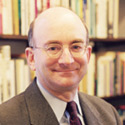|
|
 |
 |
 |
 |
|
AROUND THE QUADSWhat They SaidSenator Hillary Clinton (D.-N.Y.) spoke at a conference on the plight of the Roma, or Gypsies, in present-day Europe, in Low Library on November 8. “The treatment of the Roma and ethnic, racial and religious minorities in general is one that tests democracy,” Clinton said. “The more we do to make democracy real in the lives of as many people as possible around the world, the closer we are to seeing democracy and freedom triumph for all.” Kofi Annan, secretary general of the United Nations, spoke before nearly 1,000 people at the 16th annual World AIDS Day Commemoration at the Cathedral of St. John the Divine on December 1. “The AIDS pandemic stands alone in human experience. Never before have we as a people encountered such a formidable enemy, and only together, as a united people, can we fight it. The courage women have shown in this fight is matched only by the toll the disease has taken on them. Empowering women in the fight against HIV/AIDS must be our strategy for the future.” Ruth Bader Ginsburg ’59L, associate justice of the Supreme Court, spoke on October 21 at an event commemorating the 50th anniversary of the court’s landmark ruling in Brown v. Board of Education, which declared that the doctrine of “separate but equal” had no place in public education in the United States. Ginsburg said the ruling “propelled the human rights movement” in many countries and is part of the “evolution toward respect, in law and practice, for human dignity.” The decision “came as a timely reassurance in may countries, where America’s prestige had been damaged by segregation, of the principle that all men are created equal.”
Provost Alan Brinkley, the Allan Nevins Professor of American History, spoke after the Presidential election to an audience of undergraduate history majors and colleagues from the department. “Republicans have a very clear image of where they stand culturally in American life, and Democrats don’t. There needs to be a sense that the Democratic Party stands for something other than pragmatism and tolerance, and that will be the challenge of the next wave of candidates. The Republicans have been brilliantly successful in creating strategy, language, positions, rhetoric, fund raising and so forth to do everything they need to be a disciplined, election-winning organization. The Democrats will be at a tremendous disadvantage until they can find a way to do the same.” Geoffrey Stone, professor at Chicago Law School and author of Perilous Times: Free Speech in Wartime, was the featured speaker in the first of a series of presidential lectures — “Civil Liberties in Wartime” — held in Low Rotunda on November 30. “In times of war hysteria, it becomes easy for government officials to manipulate public opinion and to cause the government itself to implement programs to preserve partisan ends. Free speech is not just a personal right. It is a part of the entire national structure by which we exist.” Professor Kenneth Hardy of the College of Human Services and Health Professions at Syracuse University spoke as part of the School of Social Work’s Distinguished Visiting Scholars Series. “Race is a major organizing principle in our lives, but we create a sort of bifurcation between the outside world and the world here at school. To truly address race in a meaningful way, we need to look at how it plays out in our own lives and how that informs the school environment and the outside world, which are all connected. We don’t know how to talk about race, because we don’t. There has to be some effort to push honest dialogue.” Noam Chomsky, professor of linguistics at MIT, spoke at Faculty House on November 16 as part of the “Critical Lectures in American Foreign Policy” series. “The idea that we should adhere [to international law] is now an extremist position,” he said. “The conventional position is that the U.S. has a unilateral right to resort to force when it chooses to do so, which is formulated by the Bush administration in its security strategy.” John Sweeney, president of the AFL-CIO, spoke about labor’s involvement in the immigration rights movement at the 10th annual David N. Dinkins Leadership & Policy Forum at SIPA. “Historically, immigrant workers played a major role in building the strongest economy and the most vibrant democracy in the world,” he said. “Immigrant workers played an important part in creating a strong union movement that lifted millions of families into the biggest middle class in history.”
|
|
|||||||||||||||||||||||||||||||||||||||||||||||||||||||||
